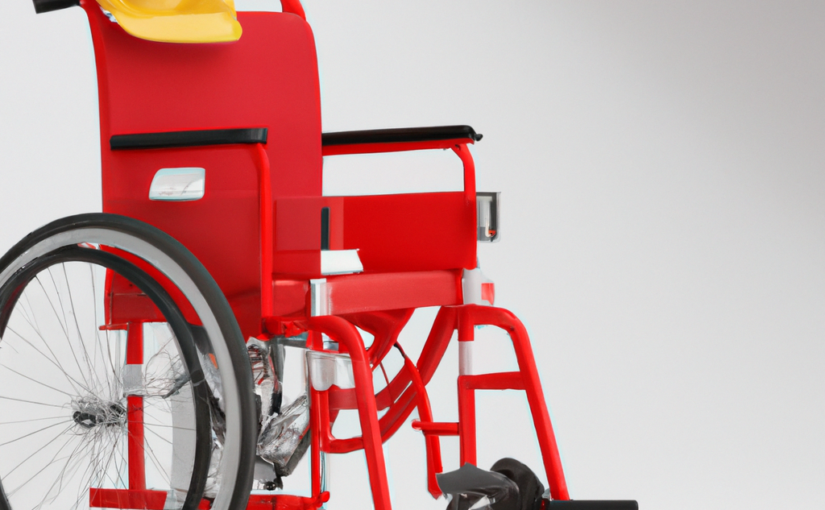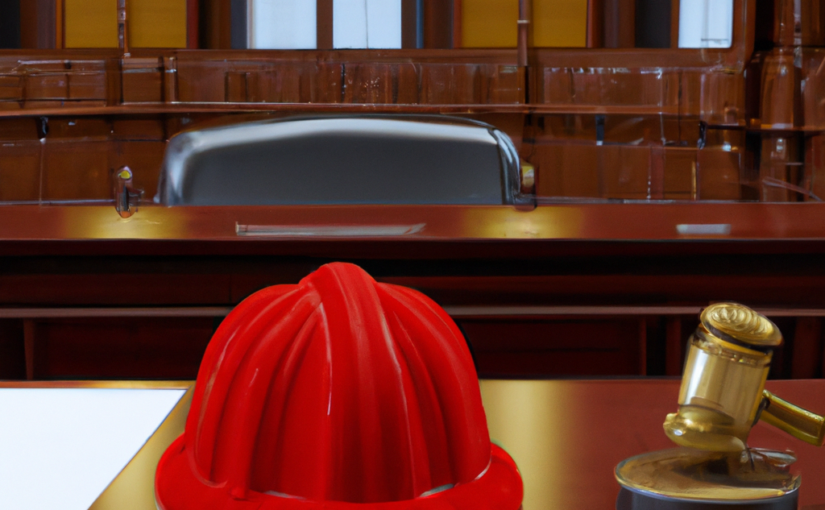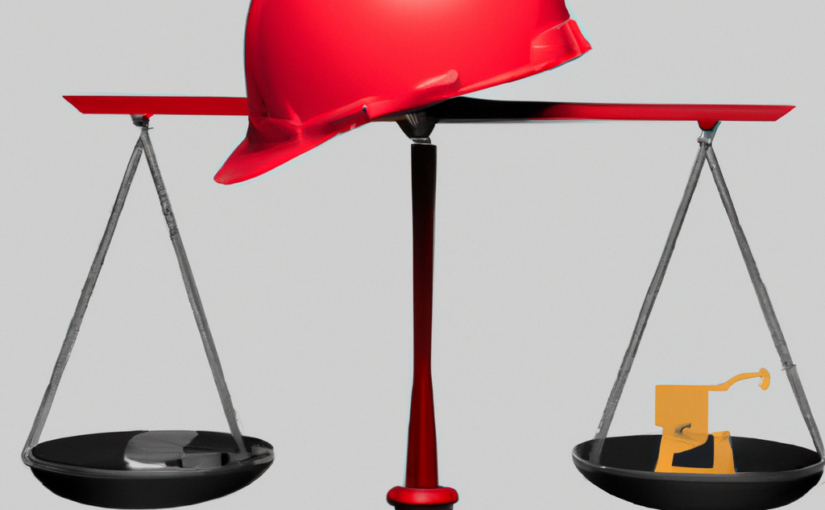Question 1: What is workers’ compensation?
Answer: Workers’ compensation is a type of insurance that provides financial compensation to employees who have been injured or become ill while performing their job duties. It is designed to cover medical expenses, lost wages, and other costs associated with the injury or illness.
Question 2: What are some of the reasons why an insurance company might deny a workers’ compensation claim?
Answer: Insurance companies may deny a workers’ compensation claim if they believe that the injury or illness was not caused by the employee’s job duties, if the employee did not follow the proper procedures for filing a claim, or if the employee has a pre-existing condition that was not disclosed.
Question 3: What should I do if my workers’ compensation claim is denied?
Answer: If your workers’ compensation claim is denied, you should contact your state’s workers’ compensation board to appeal the decision. You may also need to contact an attorney to help you with the appeal process.
Question 4: What information do I need to provide to appeal a denied workers’ compensation claim?
Answer: To appeal a denied workers’ compensation claim, you will need to provide medical records, witness statements, and other evidence that supports your claim. You may also need to provide a detailed explanation of the injury or illness and how it was caused by your job duties.
Question 5: What happens if my appeal is denied?
Answer: If your appeal is denied, you may have the option to file a lawsuit against the insurance company. You should contact an attorney to discuss your legal options.
Question 6: How long do I have to file a workers’ compensation claim?
Answer: The time limit for filing a workers’ compensation claim varies by state. Generally, you should file your claim as soon as possible after the injury or illness occurs.
Question 7: What happens if I don’t file my claim within the time limit?
Answer: If you do not file your claim within the time limit, you may not be eligible for workers’ compensation benefits. You should contact your state’s workers’ compensation board to find out the specific time limit for filing a claim in your state.
Question 8: What happens if I am not able to work due to my injury or illness?
Answer: If you are not able to work due to your injury or illness, you may be eligible for temporary disability benefits. These benefits provide financial assistance while you are unable to work.
Question 9: What if I disagree with the decision of the workers’ compensation board?
Answer: If you disagree with the decision of the workers’ compensation board, you may have the option to file an appeal. You should contact an attorney to discuss your legal options.
Question 10: What if I am not satisfied with the outcome of my appeal?
Answer: If you are not satisfied with the outcome of your appeal, you may have the option to file a lawsuit against the insurance company. You should contact an attorney to discuss your legal options
Category: Workers Comp Claims Process
Reporting the Injury: This category involves the initial steps of reporting the injury or illness to your employer. This includes notifying your supervisor, filling out any required incident reports or forms, and seeking medical attention.
Claim Filing: This category covers the process of filling out the necessary paperwork and forms required by your employer or workers’ compensation insurance carrier. This includes providing detailed information about the injury or illness, medical treatment received, and any related expenses.
Investigation: This category involves the investigation of your claim by your employer or workers’ compensation insurance carrier. This includes reviewing the information provided in your claim, gathering additional information, and making a determination on the validity of the claim.
Benefit Determination: This category covers the process of determining the benefits you may be entitled to receive, including medical treatment, wage replacement, and/or disability payments. This may involve reviewing medical records and other documentation, as well as consulting with medical professionals and other experts.
Denial or Acceptance: This category covers the final determination of your claim, whether it is accepted or denied. If your claim is accepted, you will begin receiving benefits. If it is denied, you may have the option to appeal the decision or seek legal representation.
How insurance companies handle workers’ compensation claims
Workers’ compensation is a type of insurance that provides wage replacement and medical benefits to employees who are injured on the job or become ill as a result of their employment. It also provides death benefits to the families of workers who are killed on the job.
Insurance companies handle workers’ compensation claims by first determining whether the injury or illness is work-related. If it is, the insurance company will then pay for the employee’s medical expenses and lost wages. The insurance company may also provide vocational rehabilitation services to help the employee return to work.
If the insurance company denies a workers’ compensation claim, the employee may appeal the decision. The appeal will be heard by a workers’ compensation judge. The judge will decide whether the injury or illness is work-related and whether the employee is entitled to benefits.
Here are the steps involved in handling a workers’ compensation claim:
- The employee reports the injury or illness to their employer.
- The employer files a workers’ compensation claim with the insurance company.
- The insurance company investigates the claim.
- The insurance company decides whether to approve or deny the claim.
- If the claim is approved, the insurance company pays for the employee’s medical expenses and lost wages.
- If the claim is denied, the employee may appeal the decision.
The following are some of the reasons why an insurance company might deny a workers’ compensation claim:
- The injury or illness is not work-related.
- The employee did not report the injury or illness in a timely manner.
- The employee’s injuries are not severe enough to warrant workers’ compensation benefits.
- The employee is not eligible for workers’ compensation benefits because they were not an employee at the time of the injury.
If you have been injured on the job, it is important to file a workers’ compensation claim as soon as possible. You should also contact an experienced workers’ compensation attorney to help you with your claim. An attorney can help you understand your rights and make sure that you receive the benefits that you are entitled to.
How to Overcome a Denied Workers’ Comp Claim: A Step-by-Step Guide
As a lawyer who has handled several workers’ compensation cases, I have seen many claims being denied. It can be frustrating for the injured worker who is counting on the compensation to cover their medical bills and lost wages. In this article, I will provide you with a step-by-step guide on how to overcome a denied workers’ comp claim.
Reasons for Denied Workers’ Comp Claims: Understanding Your Rights
Employers and insurance companies are always looking for reasons to deny a workers’ comp claim. Here are some of the common reasons why your claim may have been denied:
- Failure to report the injury on time
- Lack of medical evidence to support the injury
- The injury occurred outside of work
- The injury was caused by your own negligence or misconduct
- The employer disputes the claim
It is important to note that just because your claim was denied, it does not mean that you do not have a valid claim. You have the right to appeal the decision and fight for the compensation you deserve.
Appeal Process: How to Fight a Denied Workers’ Comp Claim
To appeal a denied workers’ comp claim, follow these steps:
- Review the decision and gather evidence: Carefully read the decision letter to understand the reason for the denial. Gather all the medical reports and evidence that support your claim.
- File a claim appeal: File an appeal with your state’s workers’ compensation agency. The appeal process varies from state to state, so make sure you follow the correct procedures.
- Attend the hearing: You will be given a hearing date where you will present your case to a workers’ compensation judge. Bring all the evidence you have gathered to support your claim.
- Wait for the decision: The judge will make a decision based on the evidence presented at the hearing. If you win the appeal, you will be awarded the compensation you deserve.
- Consider hiring a lawyer: If you are not comfortable navigating the appeal process on your own, consider hiring a lawyer who specializes in workers’ compensation cases.
Remember, you have the right to appeal a denied workers’ comp claim. By following the correct procedures and presenting your case with solid evidence, you may be able to get the compensation you deserve.
Being injured on the job is stressful enough without having to fight for your workers’ comp claim. By understanding your rights and following the appeal process, you can increase your chances of getting the compensation you need. If you need legal assistance, call us at 844–682‑0999.
Additional Questions
- how to appeal a denied workers’ comp claim
- reasons for denied workers’ comp claims
- workers’ compensation appeal process
- fighting a denied workers’ comp claim
- hiring a workers’ comp lawyer
Related Readings:
- “Top 10 Mistakes to Avoid When Filing a Workers’ Comp Claim”
- “What to Do If Your Workers’ Comp Claim Is Denied”
- “The Importance of Medical Evidence in a Workers’ Comp Claim”
- “Common Myths About Workers’ Comp Claims”
- “How to Choose the Right Workers’ Comp Lawyer for Your Case”
What to Do When Your Workers’ Comp Claim Gets Denied
As a worker who has experienced an injury on the job, you expect to receive compensation through workers’ compensation insurance. Unfortunately, not all claims are accepted, and the reasons for claim denials can vary. Denied claims can be frustrating, confusing, and financially damaging. As a workers’ compensation lawyer, I have seen firsthand the devastating effects of denied claims. In this article, I will discuss common reasons for claim denials and steps to take when your claim is denied.
Reasons for Workers’ Comp Claim Denial
- Failure to Report Injury: One of the most common reasons for workers’ comp denial is the failure to report the injury within the specified timeframe. Most states require that employees report the injury to their employer within a specific period, ranging from a few days to a few months. If you fail to report your injury within that timeframe, your claim may be denied.
- Lack of Medical Evidence: Another reason for denied claims is the lack of medical evidence that the injury occurred on the job. Without medical evidence, insurers may believe that the injury occurred outside of work, which can lead to a denied claim.
- Pre-Existing Conditions: If you have a pre-existing condition that is similar to the injury you sustained on the job, your claim may be denied. Insurers may argue that your injury is not work-related, but rather a pre-existing condition.
- Disputed Facts: Some claims are denied due to disputed facts surrounding the injury. For example, if your employer disputes the severity of your injury, your claim may be denied.
- Missed Deadlines: There are deadlines for filing claims, appealing denials, and submitting evidence. If you miss any of these deadlines, your claim may be denied.
Steps to Take When Your Claim is Denied
- Review the Decision: The first step to take when your claim is denied is to review the decision to understand why it was denied. This can include reviewing medical records, speaking with your employer, and consulting with an attorney.
- File an Appeal: If you believe that your claim was wrongly denied, you have the right to file an appeal. This involves requesting a hearing with the workers’ compensation board to present your case.
- Gather Evidence: To strengthen your appeal, gather as much evidence as possible. This can include medical records, witness statements, and documentation from your employer.
- Consult with an Attorney: Workers’ compensation laws can be complex, and consulting with an experienced attorney can help you understand your rights and navigate the appeals process.
- Follow the Deadlines: It’s crucial to follow all deadlines when appealing a denied claim. Missing a deadline can result in the loss of your right to appeal.
Denied workers’ compensation claims can be frustrating and financially damaging. However, there are steps you can take if your claim is denied. Remember to report your injury promptly, gather medical evidence, and consult with an experienced attorney. With proper preparation and attention to deadlines, you can increase your chances of a successful appeal.
Additional Questions
- Common reasons for workers’ comp claim denial
- Lack of medical evidence in workers’ comp claims
- Appealing a denied workers’ comp claim
- Pre-existing conditions in workers’ comp claims
- Workers’ compensation deadlines
Related Readings:
- Understanding Workers’ Compensation Insurance
- How to Report a Workplace Injury
- The Importance of Medical Evidence in Workers’ Comp Claims
- What to Expect During a Workers’ Comp Appeal Hearing
- The Role of an Attorney in Workers’ Comp Claims
The Top 10 Most Common Reasons for Workers’ Comp Denials
As a lawyer who represents injured workers, I know that filing for workers’ compensation can be a confusing and frustrating process. Unfortunately, many claims are denied for a variety of reasons, leaving workers without the financial support they need to recover from their injuries. In this article, I’ll discuss the top 10 most common reasons for workers’ comp denials, and provide some tips on how to avoid these pitfalls.
Understanding the Top 10 Reasons for Workers’ Comp Rejections
The Most Frequent Causes for Workers’ Comp Denials
- Failure to Report the Injury in a Timely Manner: Many states require injured workers to report their injuries to their employer within a certain timeframe, typically within 30 days. If you fail to report your injury in a timely manner, your claim may be denied.
- Lack of Medical Evidence: In order to receive workers’ comp benefits, you must have medical evidence to support your claim. This may include medical records, diagnostic tests, and doctor’s notes. If you don’t have enough medical evidence to prove your injury, your claim may be denied.
- Pre-Existing Conditions: If you have a pre-existing medical condition that is aggravated by your work injury, your claim may be denied. However, if your work injury aggravates a pre-existing condition, you may still be eligible for workers’ comp benefits.
- Misconduct or Intoxication: If your injury was caused by your own misconduct or intoxication, your claim may be denied. For example, if you were injured while under the influence of drugs or alcohol, your claim may be denied.
- Independent Contractor Status: If you are classified as an independent contractor rather than an employee, you may not be eligible for workers’ comp benefits. However, if you were misclassified as an independent contractor, you may still be able to pursue a claim.
- Disputed Facts: If there are disputed facts in your claim, such as whether your injury occurred on the job or whether it was caused by a pre-existing condition, your claim may be denied. It’s important to gather as much evidence as possible to support your claim.
- Failure to Follow Medical Treatment: If you fail to follow your doctor’s recommended treatment plan, your claim may be denied. This is because the insurance company may argue that you are not doing everything you can to recover from your injury.
- Lack of Credibility: If the insurance company believes that you are not telling the truth about your injury or your symptoms, your claim may be denied. It’s important to be honest and consistent in your statements about your injury.
- Statute of Limitations: Each state has a statute of limitations for filing a workers’ comp claim. If you miss this deadline, your claim may be denied.
- Employer Dispute: If your employer disputes your claim, it can make the process more difficult. It’s important to gather as much evidence as possible to support your claim, and to consult with an experienced workers’ comp lawyer.
If your workers’ comp claim has been denied, don’t give up hope. There may be options available to you, such as appealing the decision or pursuing a lawsuit. To learn more about your legal rights and options, contact a knowledgeable workers’ comp lawyer today.
Additional Questions
- Workers’ compensation denial reasons
- Common reasons for workers’ comp claim denials
- How to avoid workers’ comp claim denials
- Tips for workers’ compensation claim success
- Workers’ compensation appeal process
Related Readings:
- “How to File a Workers’ Compensation Claim: A Step-by-Step Guide”
- “Understanding the Difference Between Workers’ Comp and Personal Injury Claims”
- “The Importance of Seeking Medical Treatment After a Work Injury”
- “How to Choose the Right Workers’ Comp Lawyer for Your Case”
- “The Pros and Cons of Settling Your Workers’ Comp Claim”
Workers Comp Demand Letter
Discover a comprehensive workers’ compensation demand letter example to help guide you in crafting a persuasive and effective claim for you. Get insights on key components and legal considerations to maximize your settlement potential.
A Guide for Lawyers to Settle Claims with Insurance Companies
[Your Name]
[Your Address]
[City, State, Zip Code]
[Phone Number]
[Email Address]
[Today’s Date]
[Claims Adjuster’s Name]
[Insurance Company Name]
[Insurance Company Address]
[City, State, Zip Code]
Re: Workers’ Compensation Claim
Claimant: [Injured Worker’s Name]
Claim Number: [Claim Number]
Date of Injury: [Date of Injury]
Dear [Claims Adjuster’s Name],
I represent [Injured Worker’s Name] concerning their workers’ compensation claim arising from an injury sustained on [Date of Injury] while employed by [Employer’s Name]. The purpose of this letter is to demand a fair and reasonable settlement for the damages sustained by my client as a result of this workplace injury.
As you are aware, [Injured Worker’s Name] sustained a [type of injury, e.g., back injury] when [brief description of how the injury occurred]. As a direct result of this incident, my client has suffered from pain, discomfort, and the inability to work in their usual capacity.
The following is a summary of my client’s medical treatment and expenses:
[Medical Provider Name]: [Dates of Treatment] — [Description of Treatment] — [Cost]
[Medical Provider Name]: [Dates of Treatment] — [Description of Treatment] — [Cost]
[Include any additional relevant medical treatments and expenses.]
In addition to the medical expenses listed above, my client has lost wages due to their inability to work. [Injured Worker’s Name] was unable to work from [Date] to [Date], resulting in a loss of wages totaling $[Amount].
Pursuant to [your State Statutes, Section ###], my client is entitled to compensation for temporary total disability, temporary partial disability, or permanent total disability, as well as medical benefits under [your State Statutes, Section ###].
Based on the foregoing, we demand a settlement in the amount of $[Total Settlement Amount] to compensate my client for their medical expenses, lost wages, pain and suffering, and any other damages resulting from this workplace injury. We kindly request a response to this demand within [e.g., 30 days] from the date of this letter.
Please be advised that if we cannot reach a reasonable settlement, we are prepared to pursue all available legal remedies on behalf of our client.
Thank you for your attention to this matter. We look forward to your prompt response.
Sincerely,
[Your Name]
[Your Law Firm Name]
Why Hiring a Lawyer for Your Settlement Can Be More Effective Than Going It Alone
When it comes to negotiating a settlement for a personal injury or workers’ compensation claim, many individuals may consider handling the process themselves to save on legal fees. However, hiring an experienced lawyer can significantly improve your chances of receiving a fair and favorable settlement. Here are some key reasons why hiring a lawyer can be more effective than going it alone.
- Expertise in Legal Procedures Lawyers have years of experience and education in their field. They are well-versed in the complexities of the legal system and can navigate through procedures, deadlines, and paperwork with ease. This expertise can save you time and help ensure that your case is handled properly.
- Strong Negotiation Skills Attorneys possess strong negotiation skills that can be invaluable in reaching a favorable settlement. They can effectively present your case, evaluate offers, and counter lowball settlement proposals. Their expertise can help you receive the maximum compensation you deserve.
- Knowledge of Laws and Regulations A lawyer is knowledgeable about the specific laws and regulations governing your case. They can identify any relevant statutes of limitations, workers’ compensation laws, or liability issues that could impact your claim. This knowledge can help ensure that you receive the full compensation you are entitled to under the law.
- Access to Resources Law firms have access to resources such as expert witnesses, investigators, and medical professionals that can strengthen your case. These resources can help build a solid foundation for your claim and improve your chances of success.
- Contingency Fee Arrangements Many personal injury and workers’ compensation attorneys work on a contingency fee basis, which means they only get paid if you win your case. This arrangement ensures that your lawyer is motivated to achieve the best possible outcome for you, and it removes the financial burden of upfront legal fees.
- Reducing Stress Dealing with a legal claim can be time-consuming and stressful, especially when you are trying to recover from an injury. Hiring a lawyer can alleviate much of this stress by handling the complex aspects of your case while you focus on your recovery.
So, while it might be tempting to handle your settlement claim on your own, the advantages of hiring a lawyer often outweigh any potential savings in legal fees. By enlisting the help of an experienced attorney, you can benefit from their expertise, negotiation skills, and resources to secure the best possible outcome for your case.
Frequently Asked Questions
Question 1: What is a Workers Comp Demand Letter?

Answer: A Workers Comp Demand Letter is a formal letter sent by an injured worker to their employer or their employer’s insurance company to demand compensation for medical expenses, lost wages, and other costs related to a workplace injury.
Question 2: How do I write a Workers Comp Demand Letter?

Answer: When writing a Workers Comp Demand Letter, it is important to include all relevant information, such as the date of the injury, the details of the injury, and the medical treatment that has been received. Additionally, the letter should include a clear demand for compensation and a timeline for when the compensation should be received.
Question 3: What should I include in my Workers Comp Demand Letter?

Answer: When writing a Workers Comp Demand Letter, it is important to include all relevant information, such as the date of the injury, the details of the injury, and the medical treatment that has been received. Additionally, the letter should include a clear demand for compensation and a timeline for when the compensation should be received.
Question 4: What happens after I send my Workers Comp Demand Letter?

Answer: After sending a Workers Comp Demand Letter, the employer or their insurance company may respond with an offer of compensation. If the offer is not satisfactory, the injured worker may need to take legal action to pursue the compensation they are entitled to.
Question 5: Is there a time limit for sending a Workers Comp Demand Letter?

Answer: Yes, there is usually a time limit for sending a Workers Comp Demand Letter. In most cases, the injured worker must send the letter within a certain period of time after the injury occurred, or they may lose their right to pursue compensation. It is important to check the applicable laws in your state to determine the exact time limit.
Have You’ve Been Injured on the Job?
No Obligation — Confidential — FREE CONSULT
844–682‑0999
Call Now
NO WIN — NO PAY
Workers Comp Intake Form
In case of injury and to file your claim, here is some of the data you must maintain to assist you in filing a workers’ comp claim.
Reporting Workers Comp Injury
| Field | Description |
|---|---|
| Employee Name | Full name of the injured employee |
| Date of Birth | Employee’s date of birth |
| Social Security Number | Employee’s SSN for identification and tax purposes |
| Address | Employee’s current address |
| Phone Number | Employee’s contact phone number |
| Email Address | Employee’s email address for communication |
| Occupation | Employee’s job title and description |
| Employment Start Date | The date when the employee started working for the company |
| Date of Injury | The date on which the injury occurred |
| Time of Injury | The time at which the injury occurred |
| Location of Injury | The specific place where the injury took place |
| Injury Description | A detailed description of the injury and how it occurred |
| Witnesses | Names and contact information of any witnesses to the incident |
| Medical Treatment | Information on medical treatment received, if any |
| Treating Physician | Name and contact information of the physician treating the injured employee |
| Work Restrictions | Any work restrictions due to the injury |
| Lost Time from Work | Information on any time missed from work due to the injury |
| Employer Name | Name of the company or organization employing the injured worker |
| Employer Address | Address of the company or organization |
| Employer Phone Number | Contact phone number for the company or organization |
| Supervisor Name | Name of the injured employee’s direct supervisor |
| Supervisor Phone Number | Contact phone number for the employee’s supervisor |
#Amazon #AppealsProcess #BackToWorkAfterInjury #Calculators #ClaimsDenied #ConstructionWorkersCompensation #DeathBenefits #Employers #FloridaWorkersCompBenefits #FreeConsult #IndependentContractors #InjuredAtWork #InsuranceForWorkersComp #LawsIn50States #Lawyer #MedicalBenefits #NJLaws #OccupationalInjuries #OregonWorkersCompBenefits #OSHA #PermanentBenefits #RehireAfterInjury #RepetitiveMotionInjuries #Rights #SocialSecurity #TemporaryBenefits #TennesseeWorkersComp #TransportationWorkers #USDepartmentOfLabor #WorkersCompBenefits #WorkersCompClaims #WorkersCompDisabilityClaims #WorkersCompensationLaws #WorkersCompRights #WorkInjuryTerms
Denied Workers’ Comp Claims: How to Fight Back and Win
When a claim is denied, injured workers are left with mounting medical bills and lost wages, while struggling to recover from their injuries.
- Denied Workers’ Comp Claims
- Fighting a Denied Workers’ Comp Claim
- Reasons for Denied Workers’ Comp Claims
- Appeal a Denied Workers’ Comp Claim
- Workers’ Compensation Benefits
How to Win Workers Comp Claims !
Denied Workers’ Comp Claims: Reasons and Consequences
There are several reasons why a workers’ comp claim may be denied. One of the most common reasons is a lack of medical evidence. Insurance companies will often deny claims if there is not enough medical evidence to support the injury or illness. Additionally, if the injury or illness is not considered work-related, the claim may also be denied.
Another reason for denied claims is missed deadlines or incomplete paperwork. Workers must file their claim within a certain timeframe, and if they miss this window or fail to fill out the necessary paperwork correctly, their claim may be denied. Lastly, if the injury occurred while the worker was under the influence of drugs or alcohol, the claim may be denied.
The consequences of a denied workers’ comp claim can be severe. Injured workers may be left with unpaid medical bills and no way to support themselves or their families while they recover. This financial stress can also lead to emotional distress and a prolonged recovery time.
Steps to Take When Fighting a Denied Workers’ Comp Claim
If your workers’ comp claim has been denied, there are steps you can take to fight back and win. The first step is to consult with an experienced workers’ comp lawyer. A lawyer can help you understand the reasons for the denial and develop a strategy to appeal the decision.
Next, gather as much evidence as possible to support your claim. This may include medical records, witness statements, and photos of the injury or accident scene. Your lawyer will use this evidence to build a strong case and prove that your injury or illness is work-related.
Once you have gathered evidence, file an appeal with the workers’ comp board. This appeal will go before a judge, who will review the evidence and make a decision. It is important to have legal representation during this process, as the insurance company will likely have their own lawyers present.
If your appeal is successful, you may be awarded workers’ compensation benefits, including medical expenses and lost wages. If your appeal is denied, you may be able to file a further appeal to a higher court.
While a denied workers’ comp claim can be a difficult and stressful experience, it is important to remember that there are steps you can take to fight back and win. By working with an experienced workers’ comp lawyer and gathering evidence to support your claim, you can increase your chances of success and get the compensation you deserve.
Related Readings:
- How to File a Workers’ Comp Claim
- Understanding Workers’ Comp Laws
- Common Injuries Covered by Workers’ Comp
- Workers’ Comp for Mental Health Injuries
- How Long Does a Workers’ Comp Claim Take?
#Amazon #AppealsProcess #BackToWorkAfterInjury #Calculators #ClaimsDenied #ConstructionWorkersCompensation #DeathBenefits #Employers #FloridaWorkersCompBenefits #FreeConsult #IndependentContractors #InjuredAtWork #InsuranceForWorkersComp #LawsIn50States #Lawyer #MedicalBenefits #NJLaws #OccupationalInjuries #OregonWorkersCompBenefits #OSHA #PermanentBenefits #RehireAfterInjury #RepetitiveMotionInjuries #Rights #SocialSecurity #TemporaryBenefits #TennesseeWorkersComp #TransportationWorkers #USDepartmentOfLabor #WorkersCompBenefits #WorkersCompClaims #WorkersCompDisabilityClaims #WorkersCompensationLaws #WorkersCompRights #WorkInjuryTerms
#workerscompensation #deniedclaims #workinjuries #fightback #compensation
How to Avoid Common Mistakes That Lead to Workers’ Comp Claim Denials
Discover the common mistakes that can lead to workers’ compensation claim denials and learn practical strategies to avoid them. Don’t let your claim get denied. Contact us at 844–682‑0999 for help.
- Understand why claims are denied
- Keep detailed records of all information
- File the claim promptly
- Have a thorough understanding of the workers’ compensation process
- Contact an experienced workers’ comp lawyer for help
Workers’ Comp Claim Denials
If you’ve been injured on the job, you may be eligible for workers’ compensation benefits. However, many claims get denied and it’s important to know the common mistakes that can lead to a denial. In this article, you’ll learn how to avoid them and make sure your claim is successful.
Uncovering Common Denial Reasons
There are several reasons why workers’ compensation claims get denied. Usually, the most common reasons can be attributed to improper filing, missing information, and employer disputes. Here are some of the most common mistakes that can lead to a denial:
- Failing to file within the proper time frame
- Providing incomplete or incorrect information
- Not seeking medical treatment in a timely manner
- Employer disputes about the severity of the injury
- Failing to provide sufficient proof of the injury or accident
It is important to understand these common reasons for denial so that you can avoid them and ensure a successful claim.
Strategies to Avoid Claim Denials
Here are some strategies to make sure your claim is not denied:
- Keep detailed records: When filing a workers’ compensation claim, you’ll need to provide detailed information about the accident or injury. Make sure you keep records of all relevant documents including medical reports, time off work, and any other relevant information. This will help you provide the right information and make it easier to build a successful claim.
- File promptly: Workers’ compensation claims must be filed within a certain time period, usually within one year of the accident or injury. It’s important to file the claim as soon as possible to avoid any delays or denials.
- Understand the process: Make sure you have a thorough understanding of the workers’ compensation process and all the requirements before filing your claim. This will help you ensure that everything is in order and your claim is filed properly.
- Contact an experienced lawyer: An experienced lawyer can help you navigate the workers’ compensation process and make sure your claim is successful. A lawyer will be able to provide the advice and guidance needed to ensure a successful claim.
Workers’ compensation claims can be complicated and it’s important to take the necessary steps to help ensure that your claim is successful. By understanding common mistakes that lead to denials and taking the necessary steps to avoid them, you can be sure that your claim is successful. If you have any questions or need help with your claim, contact us at 844–682‑0999.
More Questions?
- Common mistakes workers’ compensation claim denials
- Strategies to avoid workers’ compensation claim denials
- Reasons for workers’ compensation claim denials
- How to file a successful workers’ compensation claim
- Working with an experienced lawyer on a workers’ compensation claim
Related Readings:
- Understanding Workers’ Compensation Benefits
- How to File a Workers’ Compensation Claim
- Navigating the Workers’ Compensation Appeals Process
- Dealing with Employers in a Workers’ Compensation Claim
- The Benefits of Working with a Workers’ Compensation Attorney
#Amazon #AppealsProcess #BackToWorkAfterInjury #Calculators #ClaimsDenied #ConstructionWorkersCompensation #DeathBenefits #Employers #FloridaWorkersCompBenefits #FreeConsult #IndependentContractors #InjuredAtWork #InsuranceForWorkersComp #LawsIn50States #Lawyer #MedicalBenefits #NJLaws #OccupationalInjuries #OregonWorkersCompBenefits #OSHA #PermanentBenefits #RehireAfterInjury #RepetitiveMotionInjuries #Rights #SocialSecurity #TemporaryBenefits #TennesseeWorkersComp #TransportationWorkers #USDepartmentOfLabor #WorkersCompBenefits #WorkersCompClaims #WorkersCompDisabilityClaims #WorkersCompensationLaws #WorkersCompRights #WorkInjuryTerms
#workerscompensation #workerscompclaim #deniedclaims #claimdenials #workerscomp
The Appeals Process for Denied Workers’ Comp Claims: A Comprehensive Guide
If your Workers’ Comp claim has been denied, follow the steps below to know your rights and appeal the decision. Call 844–682‑0999 to learn more.
- Understanding the Claims Process
- Tips for Filing an Appeal
- What to Expect During the Appeals Process
- The Different Types of Appeals
- Resources to Learn More
What happens when a Workers’ Comp claim is denied? It can be a confusing and disheartening process. In this article, we provide a comprehensive guide on appealing a denied Workers’ Comp claim. We discuss the process, offer tips for filing an appeal, and provide resources to understand the claims process. If your Workers’ Comp claim has been denied, follow the steps below to know your rights and appeal the decision.
Workers Comp Appeal Denied ?
Step 1: Appealing a Denied Claim
Once you’ve received notice of a denied Workers’ Comp claim, the first step is to understand the reason for the denial. This information should be provided in the notice. If you don’t understand the reason or feel it’s not valid, you have the right to challenge the decision.
The first level of appeal is usually a review by the state Workers’ Comp board. It’s important to check the deadline for filing an appeal, which is typically a few weeks after receiving the denial notice. You’ll submit your appeal to the appeals board and they’ll review the case to decide if the denial should be reversed.
If the appeals board upholds the denial, you can file a lawsuit. This route can be more complicated and costly, so it’s best to consult with a lawyer first to discuss your situation.
Step 2: Understanding the Process
It’s important to understand the appeals process before filing an appeal. Different states have their own regulations and procedures for appealing a denied claim so make sure that you’re familiar with yours.
When filing an appeal, you’ll need to provide evidence to support the claim. This could include medical records, doctor’s reports, witness statements, or other documents that prove the injury took place.
It’s also helpful to have a legal advocate or lawyer on your side. They can provide guidance on the process and help make sure your appeal is as effective as possible.
It can be a long and confusing process to appeal a denied Workers’ Comp claim. By understanding the process and preparing your evidence ahead of time, the appeals process can be a smoother experience. If your Workers’ Comp claim has been denied, follow the steps outlined above to know your rights and appeal the decision. Call 844–682‑0999 to learn more.
More Questions:
- Workers’ Comp appeals process
- How to appeal a denied Workers’ Comp claim
- Understanding your rights for denied Workers’ Comp
- Tips for filing an appeal
- Resources for the Workers’ Comp appeals process
Related Readings:
- How to File a Workers’ Comp Claim
- Understanding Workers’ Comp Benefits
- How to Navigate the Legal System For Workers’ Comp Claims
- Fighting a Denial of Workers’ Comp Benefits
- Understanding Workers’ Comp Laws
#Amazon #AppealsProcess #BackToWorkAfterInjury #Calculators #ClaimsDenied #ConstructionWorkersCompensation #DeathBenefits #Employers #FloridaWorkersCompBenefits #FreeConsult #IndependentContractors #InjuredAtWork #InsuranceForWorkersComp #LawsIn50States #Lawyer #MedicalBenefits #NJLaws #OccupationalInjuries #OregonWorkersCompBenefits #OSHA #PermanentBenefits #RehireAfterInjury #RepetitiveMotionInjuries #Rights #SocialSecurity #TemporaryBenefits #TennesseeWorkersComp #TransportationWorkers #USDepartmentOfLabor #WorkersCompBenefits #WorkersCompClaims #WorkersCompDisabilityClaims #WorkersCompensationLaws #WorkersCompRights #WorkInjuryTerms
#WorkersComp, #AppealsProcess, #ClaimsDenied, #LegalAdvice, #WorkersRights








